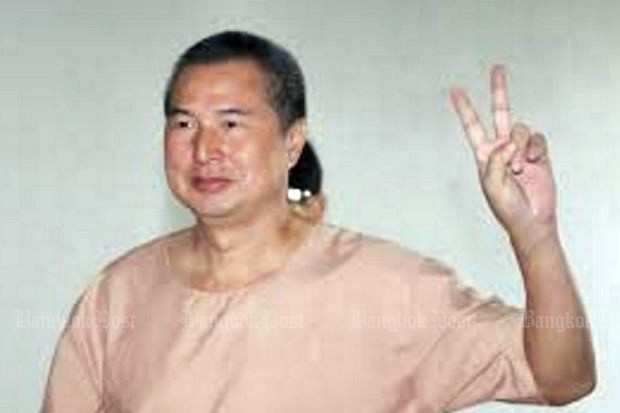
Seoul: Korean labour activists will announce a special prize to Thai lese majeste prisoner Somyot Prueksakasemsuk, who will be the first non-Korean unionist to win the award, according to the Korean Confederation of Trade Unions.
The Jeon Tae Il Labour Prize, awarded to labour activists in Korea over the past 23 years, is to be given to the Korean union's long-time colleague Somyot to underscore the global campaign to free the Thai labour activist, said Kang Yeon-bae, head of education and information for the Korean Health and Medical Workers' Union.
"For the past two decades, Somyot and I have worked closely together at the International Federation of Chemical, Energy, Mine and General Workers' Unions (now IndustriALL Global Union). He has also brought union members from Thailand to attend workshops in Korea many times. We consider him a good friend to labour movements in the region," said Mr Kang, whose union is an affiliate of the Korean Confederation of Trade Unions.
Mr Kang said Somyot was not only a key person supporting Thai factory workers' labour rights but he has also made efforts in the country's democratisation. The Korean unionists, therefore, have joined the global campaign to release him and other political prisoners in Thailand, he said.
Jeon Tae Il was a great symbol of labour rights. At the age of 22, he set himself alight on Nov 13, 1970 as police and authorities proved reluctant to support the rights of sweatshop workers. His death later inspired a strong labour movement in South Korea.
"Each year, union organisations have discussed who deserves the prestigious prize and we have concluded that it should be given to Somyot in solidarity with the Free Somyot Campaign," said Mr Kang.
Somyot's daughter, Prakaidao Pruksakasemsuk, a fourth-year university student, will receive the award on behalf of her father who is still in jail waiting for the Supreme Court's verdict.
Somyot was arrested on April 30, 2011, five days after he launched a petition to collect 10,000 signatures required for a parliamentary review of Section 112, known as the lese majeste law. On Jan 23, 2013, the Criminal Court sentenced him to 10 years in prison for allowing the publication of two satirical articles in the now-defunct magazine Voice of Taksin, of which he was the editor.
On September 19, 2014, the Court of Appeals upheld the initial court ruling, prompting the disappointment of the UN Office of the High Commissioner for Human Rights (OHCHR).
On August 11, 2015, the OHCHR urged Thailand to amend the "vague and broad" lese-majeste law to bring it in line with international human rights standards.
